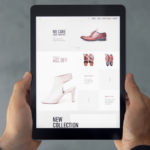The Great Recession of 2008 left behind an aftershock that Millennials will never forget. Between the ages of 12 and 27, Millennials were old enough to experience the direct impact of the financial crisis. In fact, many of us were just entering (or attempting to enter) the job market when the recession hit.
Even 14 years later, Millennials still feel the effects of the 2008 financial crisis, as it prolonged our path to wealth accumulation, delaying our major life milestones. For instance, the median age of US homebuyers is up from 31 years old in 1981 to 47 in 2019. That’s a pretty depressing statistic.
Now, in 2022, we’re anticipating another financial hit. Some economists predict the world will face a new recession towards the end of 2022, another blow for Millennials and retailers alike. There isn’t much you can do to prevent a recession, but there are several ways you can work to retain your millennial customers and ensure your business stays afloat.
Are We Really Headed Toward a Recession?
Before we broach the topic of financial doom, let’s get on the same page about the meaning of a recession. Technically, a recession is “a significant decline in economic activity that is spread across the economy and lasts more than a few months,” as defined by the National Bureau of Economic Research’s Business Cycle Dating Committee. Economists traditionally declare recession when the economy faces negative gross domestic product (GDP), decreasing employment rates, plummeting retail sales, and depleting income for an extended period. But importantly, recessions are considered an unavoidable part of the business cycle and are customarily followed by tremendous economic growth.
Experts are divided on whether we are, in fact, approaching a recession. The job market is hot, which is a strong sign that we’re staying afloat; however, inflation is soaring, and the cost of living is increasing exponentially. That’s not a great sign.
Some folks claim that they already feel the effects of a recession. According to Bloomberg economists, Misery Indexes, which blend unemployment and inflation rates, show that the United States misery gauge is already 12.2%, similar to levels at the start of the pandemic and in the wake of the 2008 financial crisis.
A recession will undoubtedly hurt. But Lisa Shallet, Morgan Stanley’s Wealth Management CIO, is relatively hopeful when considering the potential crisis, suggesting that if a recession does hit, it’s likely to be shallower and less damaging to corporate earnings than other recent downturns.
Building an Agile, Recession-Proof Retail Strategy
Whether you’re beginning to see the recession’s chokehold on your retail business or riding the post-pandemic retail high, you need to prepare for what could come. Browse through the following tips to help you better absorb the shock if/when the recession hits:
- McKinsey & Company advises retailers to increase their resiliency by building cash reserves, moving into new markets, reshaping value propositions, and maintaining customer service initiatives.
- Shopify suggests that retailers rethink their marketing strategies, cut costs, and use savings to reinvest.
- Salesforce recommends that retailers refocus on delivering value rather than hitting quotas, set clear performance expectations, and automate tasks to maximize efficiency.
Recession is hard on retailers. But remember that Millennials are still in their greatest spending years—regardless of the economy’s health. We’re shopping for home goods and baby products, for example, more than ever before. Millennial consumers are out there. You just need to know their needs and be ready to adapt to them. When you’re ready to recession-proof your retail strategy, contact the experts at Sophelle.




